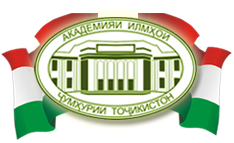The expected development of the Internet sector will boost the growth of the economy and help fill the treasury. But will the country have enough resources for an ambitious project.
Tajikistan plans to regain its lost positions in the IT and telecommunications market in the early 2010s, once again becoming a key point in the network infrastructure.
It sounds loud, given the whole heap of problems in this sector. But is the goal of turning the country into a major digital hub really that far? Let’s try to figure out how technologically ready the republic is for such a role.
Rotate, connect, advance
The very word “hub”, which came from the English language, originally meant “the center of the wheel.” Figuratively speaking, a hub is something “around which everything revolves”.
Now this is the name of computer network nodes, airports where it is convenient to transfer passengers, large logistics centers, international Internet traffic exchange points.
The plans of Tajikistan, or rather, all the largest players in the telecommunications market, are to become such a digital hub – an important infrastructure hub for the IT sector. This means hosting servers, software or databases of the world’s largest companies in the country.
The seriousness of such plans is evidenced at least by the fact that appropriate structures are being actively created in the country.
The first IT Park in Tajikistan will be built in Dushanbe
For example, in 2021, the Council on Artificial Intelligence (AI Council) appeared under the Ministry of Industry and New Technologies.
One of its tasks is to promote programs that position Tajikistan as a regional AI hub. And you can look at the issue much broader and not be limited to the field of artificial intelligence.
More “numbers” – more money
But does Tajikistan need to become a hub? However, this process is costly and complex. The correct answer is definitely yes. The hub, which is trusted by global companies, will raise the country’s international prestige. For ordinary citizens, this particular item is not yet very important, but it is definitely pleasant.
The digitalization of the Tajik economy will accelerate. And this is important for everyone, and here’s why. Modern digital technologies are not only the ability to work remotely or use services such as an electronic wallet from smartphones. As the practice of other states shows, digitalization contributes to the overall growth of GDP, which can reach 10-15%, mainly due to advertising and promotion of small businesses.
For example, remember for yourself how the volume of advertising in your personal social media accounts has grown in recent years. In a word, the more “numbers” – the stronger the economy.
Of course, there will be many additional jobs, since the new technological infrastructure needs to be maintained. Moreover, qualified personnel will be required for this. And where there is high qualification, there are corresponding salaries. However, we will not repeat the well-known fact that IT has long been among the leaders in terms of income along with the oil industry and the banking sector.
“The country needs IT people”: an interview with the Deputy Minister of Labor of Tajikistan
IT-specialists will be required – the education sector will step forward. Not only “quantitatively”, due to the increase in places at specialized faculties, but also qualitatively, as foreign companies will critically need competent local employees.
And the participation of large corporations in educational projects means the combination of university theory with the practice of leading companies. And young specialists will come to IT infrastructure facilities, who will need a minimum of time to adapt.
The outlook is good. But let’s ask the next question.
Will global companies go to Tajikistan?
The most interesting thing is that some of them have already arrived. Now only one of the Tajik telecom companies provides space for the physical placement of servers to such clients as Facebook, TikTok, Mail.ru group, Google Global Cach. World “grands” want to achieve two goals in this way: to reduce technogenic risks and become closer to consumers. Let’s explain both points.
Keeping all your data in one place is like having all your money in one pocket. In the event of an emergency, the loss will be irreparable.
Therefore, large companies prefer to have several of their own data processing centers (DPC), sometimes in different countries, or rent sites in several locations.
Experts call this strategy “geo-distributed redundancy”. Tajikistan is quite capable of becoming an “alternate airfield” for Internet giants.
Placing data “closer to people” is beneficial because all Internet resources are divided into two categories – internal and external. The so-called external content is delivered via fiber-optic communication lines (FOCL) from abroad, and in the process of such delivery, the speed of access to it is somewhat reduced.
“Internal”, geographically close to the user resources work faster. This means that the consumer is more satisfied.
Ringed country
But does the country have the resources to create a hub? Yes there is. The main advantages of any hub are availability and reliability.
The first is ensured primarily by the presence of advanced FOCLs, through which traffic is transmitted and which provide easy access to data from anywhere in the world. Thousands of kilometers of FOCL have been built in Tajikistan. And in advanced companies, these lines have a ring structure.
The “ring” allows traffic to be transmitted even if the fiber optic cable is damaged – it’s just that traffic flows, relatively speaking, not clockwise, but in the opposite direction. The connection is not terminated.
What cars are talking about, or Smart home in Tajik
The second type of facilities needed to create a digital hub are data centers. In terms of security, they are not inferior to defense facilities – yes, in fact, in the modern digital world they themselves are such.
This is not only about round-the-clock physical security, modern video surveillance and fire extinguishing systems, and technical and IT specialists on duty 24/7. Typically, data centers have several independent power systems, including power supply from diesel generators.
Therefore, for quite a long time, such a DATA-center can work, being completely disconnected from external networks. A variety of control and monitoring systems ensure the smooth operation of equipment and software and, as a result, the complete safety of information stored in the data center.
In Tajikistan, both public and private organizations, including line ministries and leading telecom operators, have their own data processing centers.
Therefore, it is difficult to imagine an international company, even a very large one, that could not be hosted on servers in Tajikistan. And if you think “for growth”, then there is a technical possibility to combine all the country’s data centers with fiber optic lines into a common network.
It is only a matter of agreeing on such a step. If we are to become an international digital hub, then together.
The Review
The Last Guardian
A wonderful serenity has taken possession of my entire soul, like these sweet mornings of spring which I enjoy with my whole heart. I am alone, and feel the charm of existence in this spot, which was created for the bliss of souls like mine.
PROS
- Good low light camera
- Water resistant
- Double the internal capacity
CONS
- Lacks clear upgrades
- Same design used for last three phones
- Battery life unimpressive
















